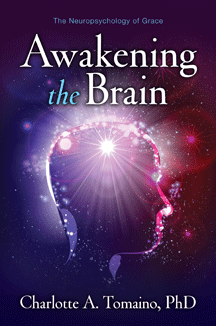 Neuroplasticity builds new neural networks for anything you do with repetition. Just like the story in Awakening the Brain about little Barbara who improved her visual spatial skills and increased her IQ by practicing drawing, puzzles, and other visual tasks, the brain will always respond to the sensory input we engage.
Neuroplasticity builds new neural networks for anything you do with repetition. Just like the story in Awakening the Brain about little Barbara who improved her visual spatial skills and increased her IQ by practicing drawing, puzzles, and other visual tasks, the brain will always respond to the sensory input we engage.
At age 65, I decided to write a book about all these wonderful things for those who have been asking me for years what they could read. My challenge was that I could not type my thoughts. I had learned to write them with a pen and then type them. That turned out to be too taxing for me, which motivated me to try to engage new skills for myself. With repetitive effort, I typed away as I thought of the next concept to share and slowly there were fewer and fewer red lines under my words on the computer screen showing the errors my fingers had made. Slowly, I began to have my fingers translate my thoughts. That, too, is neuroplasticity at work.
The brain is a use it or lose it organ. When we stop using a foreign language we start losing it. When we retire and stop reading or keeping a calendar, those skills diminish as well. The two examples, of little Barbara and myself, make my point: age does not matter. What matters is what you do and the intention you have for doing it. All the mental functions of the brain work this way. Finding words, using your memory, paying attention, solving complex problems, doing math—we humans have lots of cognitive functions, and if we use them they get stronger.
Your intention focuses your brain on why you want to build that neural network and sustains your effort through all the mistakes you make until you reach automaticity. Yes, if you persist, it will become an automatic skill. You will reinvent who you are. Because I persisted, I am now a neuropsychologist and a writer, and a whole new world for sharing this information is available to me to offer it to you.
This brief article is being written to offer you some thoughts about the power of neuroplasticity that is available to you, too. You are also invited to share your challenges and solutions for them here on the blog. Begin a discussion on what is possible in the development and expansion of human mental skills. Share your questions and, most important, share your answers. Let us know when you have put these abilities to work for you and what you discovered.
Question
To access the power of neuroplasticity to enhance the mental functions of your brain, persistence is essential. In order to persist in spite of errors, we must believe that the persistence will pay of and the skill will get easier and stronger. Who do you know or what experience have you had where significant cognitive expansion occurred? Please share your challenges, questions, and solutions with neuroplasticity and cognitive skills. How have you developed skills and reinvented yourself to be the person you are today and able to rely on the neural networks that provide the action you want?

Dear Charlotte, I am reading your book and so many thoughts arise! This is the only way I found to contact you, as there is no personal email. Glad you wrote book!
1. I am a music/sound person, studied music/brain states etc (see my web)research,
info. on Amgydala, proprioperceptive “hearing”,ears all over the body
2.Also do storytelling with harp.(see section on my web). Harp 36 years.
3. Also a Oneness Trainer, I first went to the 21-day in early 2007 in India.
4. Also Clinical Aromatherapy, working with CNS with clients, how body handle stress
I think we could have interesting conversations. Please contact me if interested!
Thank you so much for this website. i’m looking forward do reading your book. I work with Suggestopedia and neuroplasticity in foreign language learning.
Regards,
Paulo
My experience with using and teaching Alexander Technique is that learning something new makes people tired – even when the activity isn’t physical. Learning literally carves new pathways in the brain and builds new brain areas. (For instance, there has been scientific measurement that learning a physical skill of juggling results in a new area of the brain getting built!) It’s the reason for why napping is so essential to retention, because it allows this busy growing of brain plasticity to go on at a faster rate.
Pingback: site